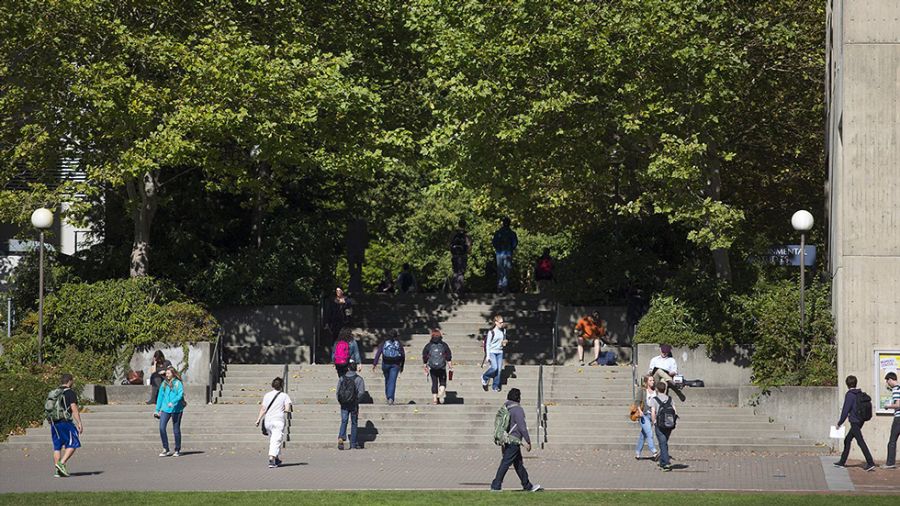House bill seeks reforms for Washington Employment Security Department
Feb 11, 2021, 6:54 AM | Updated: 6:54 am

(Getty Images)
(Getty Images)
Some of the tens of thousands of people waiting on funds and answers from the Employment Security Department (ESD) are taking their concerns to the Legislature.
House Bill 1487 seeks to reform certain policies at the ESD in the hopes of fixing some of the department’s difficulties from over the last year, including the backlog of people waiting on claims, and the inability for many to get through over the phone or internet to adjudicators.
“HB 1487 will start to change the fact that claims processing has been extended into weeks or months, and that has left so many claimants distraught,” said Anne Paxton, policy director of the Unemployment Law Project, during a hearing for the bill Wednesday.
The Unemployment Law Project represents people appealing unemployment denials, and is currently suing the ESD over the wait for benefits.
The bill, sponsored by 23 legislators, would make a variety of changes at the ESD to speed up the claims process.
State lawmakers weigh in on year of unemployment troubles, defend LeVine
“This bill will really help ESD with managing a more robust adjudicator workforce, which will help them, and, more importantly, people seeking unemployment insurance,” said Rep. Dan Bronoske (D-Lakewood).
The legislation would create an annual training program for claim adjudicators, designed to get new hires ready to work within one week. The ESD would be required to pilot a caseworker approach with claimants, meaning a claimant would work with the same ESD staff member throughout the processing period.
A whistleblower who worked at the ESD for half a year told KIRO Radio that she and her colleagues were ordered not to work with the same claimant twice, with the admonition that they “were not social workers.”
“This bill reinforces the centrally important ability to rely on human judgement in critical parts of claims processing through recruiting and training a pool of adjudicators who can step in rapidly when needed,” Paxton said.
Unemployment claimant Mara Child said during testimony that she has waited eight months for benefits because she was given the wrong information by the ESD.
“After being denied regular unemployment benefits as required for [Pandemic Unemployment Assistance], I was misdirected to apply for the [Pandemic Emergency Unemployment Compensation], for which I was never eligible, due to a glitch in the computer system,” she said. “Then I was denied both regular benefits and PUA.”
She said she has tried to get questions answered over the phone and online since then, but has “never reached a human being who can clarify contradictory or mystifying notices, or explain why my benefits are still being held up.”
As per the bill, the Employment Security Department would also need to use “plain, tested language” in letters to claimants that clearly explain the laws and the reasoning behind the decision taken. The bill would require the department to translate the letters into the 10 foreign languages most commonly spoken by Washingtonians.
“They send letters that are very confusing,” said unemployed Washington resident Jill Smith during testimony. “I got a letter on New Year’s Eve, … it’s one form letter with five different potential issues. So you don’t know if you’re about to be charged for an overpayment, you don’t know if you’re about to lose benefits, or you don’t know if it’s just a letter saying, ‘Yeah, we got your application.'”
During a presentation to the Legislature in late January, ESD representatives said that the department is already in the process of simplifying the language used in letter templates to make them easier to understand.
The bill also stipulates that Employment Security would need to set a specific number of incoming claims, calls, and phone wait times that would act as a red flag to trigger staffing changes and retraining.
In addition, the ESD would have to maintain an online data dashboard, and regularly report statistics such as claims data, claims center phone statistics, staffing ratios, and overpayment data.
The department currently operates a Benefits Data Dashboard, but since early last month, the section showing how many people are waiting on claims to process has been down for a data adjustment. Before this portion went down, the backlog had spiked at nearly 40,000 people. It is unknown when the information will return.
Finally, the bill would mandate that the Employment Security Department prepare for other potential future crises, similar to the pandemic, by conducting emergency economic condition drills and working on its economic cycle plan with other government agencies.
Another unemployment-related bill was passed by the Legislature and just signed into law last week, but it got criticism from some workers and workers’ rights groups, like Working Washington, for not requiring the ESD to pay or respond to claimants faster.
This time around, unemployment recipients like Aquina Phillips are hopeful that the legislation on the table will make a difference.
“I was not able to receive benefits; I have three daughters. My oldest daughter had to get tested for COVID-19 not once, not twice, but three times because of the illness that she suffers from. On top of that, at the time, I was going through domestic violence and homeless,” Phillips said. “I did not receive any benefits at all until after December 26.”
The department told KIRO Radio it is working on changes with legislators to get funds out quicker.
“The scale and scope of the pandemic has shown opportunities for improvement for both the national unemployment insurance system and here in Washington,” the ESD said in a statement. “We will continue to engage with the legislature [sic] on these ideas as the bill moves through the legislative process. … If passed, we’d implement and administer any program changes.”
The bill is scheduled for a vote by the House Labor and Workplace Standards Committee on Friday.
In the meantime, another set of bills aimed at helping unemployed residents — these bills requested by the ESD — are scheduled for a vote on Friday.
House Bills 1492 and 1493 would allow people to get federally-funded extended benefits even if their unemployment year has expired, and would make the requirement to search for work in order to get unemployment more flexible when it comes back after the state of emergency.













